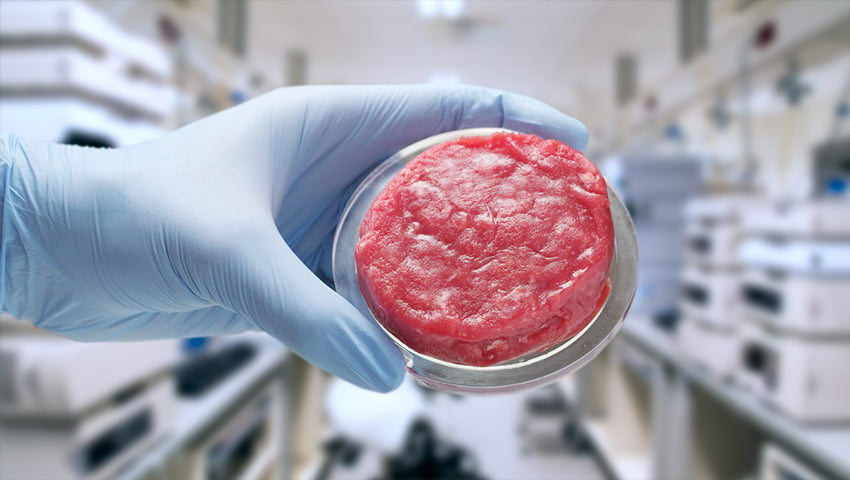There is a high level of interest in precision fermentation and so-called “cell-based meat” from the scientific community, investors, food industry, and regulatory bodies. Often considered as a possible climate solution, this societal interest has not surprisingly led to an increase in the number of scientific studies.
Precision fermentation is the process of engineering the gene sequence for a specific protein into a bacterium or yeast strain and then growing that strain in large-scale fermenters, to produce the required protein.
Now an international group of researchers has attempted to synthesise the current gaps between facts and claims regarding cell-based meat (CBM) in an article for Animal Frontiers.
They say that “despite the billions of dollars being invested in ‘cellular agriculture’, there are significant technical, ethical, regulatory, and commercial challenges to getting these products widely available in the market.” In addition, they are concerned that the widespread adoption of CBM could exacerbate global inequity between affluent and poor individuals and between high- and low-income countries.
The researchers point out that currently CBM products are not the same as the products they aim to replace, and there is still a considerable difference in terms of sensory, nutritional, and textural properties.
They are also concerned that “many societal roles of animal production beyond nutrition can be lost, including ecosystem services, co-product benefits, and contributions to livelihoods and cultural meaning.”
CBM production is also clouded in relative secrecy. “Detailed production procedures are not available, making it impossible to corroborate the many claims related to their product characteristics and sustainability.” And while CBM companies argue that the cost of their technology will significantly reduce, this is by no means guaranteed because biological systems have natural limits and feedback mechanisms.
The researchers conclude that “‘Cellular agriculture’, including CBM and precision fermentation, has been promoted as an alternative for producing future food proteins by replacing dairy and meat without involving animals. The development of such novel technologies, despite several ethical concerns, is accompanied by a multitude of research reports, the creation of start-ups, massive investments, and prominent media coverage. It has evolved into a hot topic for societal debates, often associated with divergent opinions.
“Currently, however, these new food products are not available for consumption in meaningful amounts, nor are they exposed to independent evaluation on economic or scientific grounds. Indeed, the multitude of technical challenges related to the scalability and production of CBM prototypes are not available for accurate and independent assessment in terms of their sustainability, intrinsic (sensory, nutritional, and technological attributes) or extrinsic quality.”
CBMs, they note, are only favourably perceived by a certain category of people (niche market or animal activist groups).
“The other drawbacks of these products are the limited data on the long-term human health implications (safety and health), environmental impact (although they claim less land usage), and obscure risks related with cellular engineering. Streamlined regulatory measures and continued basic research, free of conflicts of interest, are necessary to fuel product innovation, set forth requirements for appropriate monitoring of these innovative technologies, and to promote such novel foods while simultaneously ensuring both consumer safety/acceptability and guaranteeing low environmental impact.”
